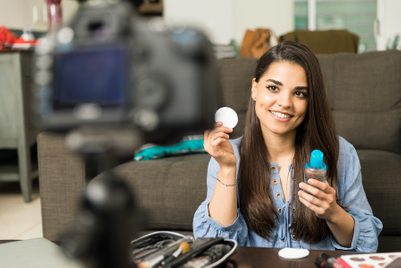
Brands now have choices when it comes to who endorses them. They can either choose a well-known celebrity or a key blogging influencer, or they can opt for both to be their brand advocates.
But what are the pros and cons of each option?
The main advantage of having a celebrity endorse your brand is that the celebrity has a ready-made brand, which presumably you have researched as being an ideal fit for your brand. The celerbrity also has a ready-made social-media following either globally or regionally, depending upon whether he or she is a global or regional or country specific superstar.
Some brands might look for a compromise and choose a local celebrity micro influencer who can be used to influence more minor micro-influencers. For example, Singtel used local well-known comedian Hossan Leong to roll out a real-time, one-day Twitter campaign #Need4GSpeed to promote the telco's 4G service. Hossan also created personalised video responses for popular bloggers in Singapore to share with their followers.
As the campaign kicked off, the popularity grew. And two hours into the campaign, organic interaction replaced interaction driven by bloggers, @Singtel followers and Hossan’s fans, who reached out to him with feedback and as word began to spread on Twitter and Facebook. In the eight hours of the campaign, @SingTel got a total of more than 1,400 submissions to #Need4GSpeed, more than 450 @SingTel mentions and more than 500,000 tweet impressions. The campaign generated more than 32,000 engagements and 1.54 million impressions on the Promoted Trend day. Daily brand mentions increased 17 times over the daily average, and traffic to Singtel’s 4G website increased by 39 per cent.
Another advantage of employing micro influencers is that you can employ many of them in various markets. They are connected and have real influence on their followers. These people really know what’s going on and have their ear to the ground. The endorsement of a micro influencer also comes across as more genuine, as the market is less mature. Everyone knows celebrities just endorse for the money.
A recent Samsung TV event for example used micro influencers instead of macros influencers to come along to the launch event and blog about the event to their followers. How were they chosen? They were measured on their social-media influence and ultimately the user was rated on a scale from 1 to 100.
With micro influencers, reach is never as great as with a celebrity. But they can be more genuine. Followers may have actually met the influencer or have interacted with them as opposed to them being an untouchable major celebrity. Of course you have to use such influencers appropriately; for example you wouldn't put one in a visual advert and expect people to know who they are.
There is also the risk that micro influencers think that their power is greater than it actually is. There is even an Influencers TV Channel on line for example which is the ultimate in vanity.
On the con side, celebrity endorsers often have baggage. There’s always the classic case of the celebrity being a brand advocate of Nike or Coca-Cola and being seen wearing adidas or drinking a Pepsi. They are a law unto themselves. They also cost a fortune and endorse many brands. Who can remember all of David Beckham’s brand endorsements, for example?
Of course, if you have the budget, you could use both: Use a high-level celebrity endorsement and then activate that endorsement using on-the-ground influencers to fan the flames.
Clara Chen is founder and CEO of Influr, a social-media influencer and measurement platform.


.jpg&h=334&w=500&q=100&v=20250320&c=1)



.png&h=334&w=500&q=100&v=20250320&c=1)
.png&h=334&w=500&q=100&v=20250320&c=1)
.png&h=334&w=500&q=100&v=20250320&c=1)

.png&h=334&w=500&q=100&v=20250320&c=1)






.png&h=268&w=401&q=100&v=20250320&c=1)

